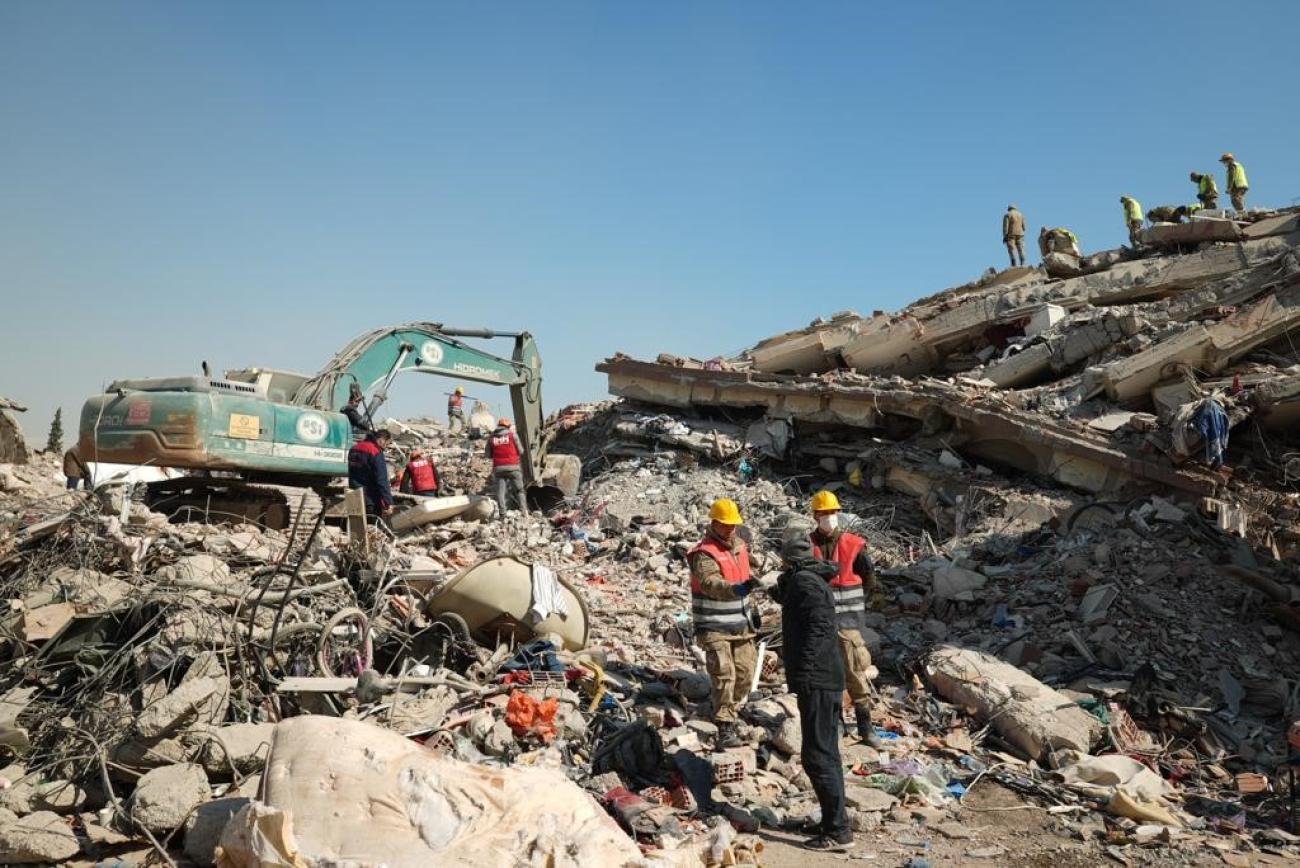Humanitarians working to save lives in Syria and Türkiye made an urgent appeal on Monday for more heavy machinery to remove rubble and debris in towns and villages shattered by last week’s earthquakes, together with medical supplies.
That includes ambulances and medicine, shelter and non-food items, including heating, emergency food supplies and so-called WASH assistance – water, sanitation and hygiene, the UN Spokesperson Stéphane Dujarric told correspondents in New York at the regular daily briefing.
“The UN continues to mobilize emergency teams and relief operations”, Mr. Dujarric stressed.
At Türkiye’s request, a UN Disaster Assessment and Coordination (UNDAC) Team with a total of 50 members has been deployed to the aid hub of Gaziantep and to three other hubs in the affected area to support the coordination of the International Urban Search and Rescue Operations, he added.
An UNDAC liaison team to Türkiye’s Disaster and Emergency Management Presidency (AFAD), who are leading the response, has also been established in Ankara.
Speaking from Ankara to UN News on Monday, UNDAC’s Winston Chang said that the scale and the damage sustained inside the disaster area in the south of the country was “one of the worst we have seen.”
6,000 high rise buildings now rubble
“We are looking at a damage area of over 50,000 square kilometers, covering a span of ten provinces…We count now, 6,000 collapsed, high rise buildings”.
He said there were still reports coming in, eight days after the deadly earthquakes struck Türkiye and Syria, of “miracle rescues”, including a newborn baby who was still attached to the umbilical cord, pulled from the rubble.
“We have 25 different disaster groups fighting across all sectors from environmental, medical, the military, of course, disaster response coordination”, he added, noting that at the Turkish national emergency centre, there was a strong sense of unity, and mission to aid those in need.
As for the horrific scale of the disaster, he said that compared to the Indian Ocean tsunami of 2004, where 220,000 were killed, “I think this one does not pale in comparison.”


















